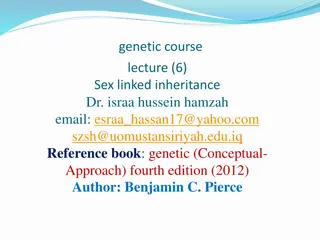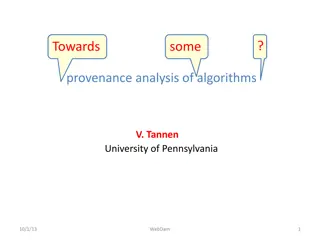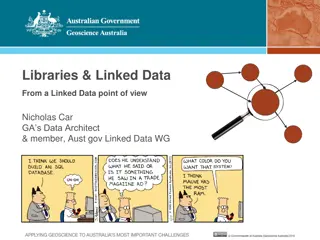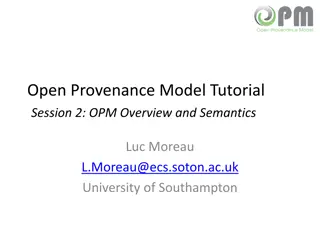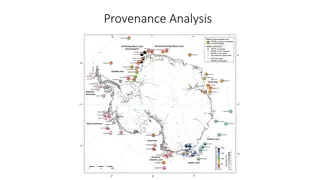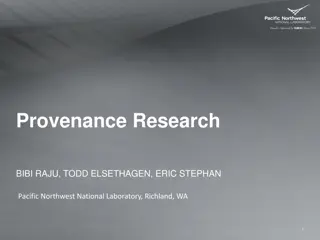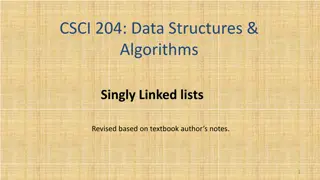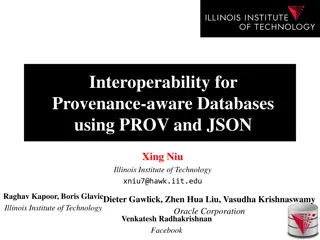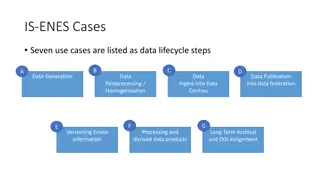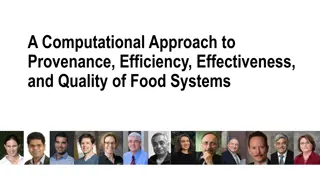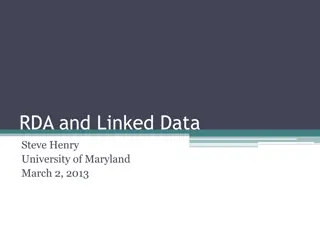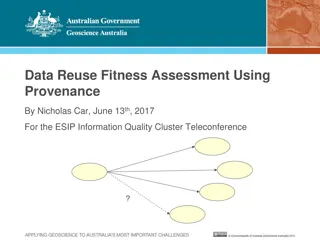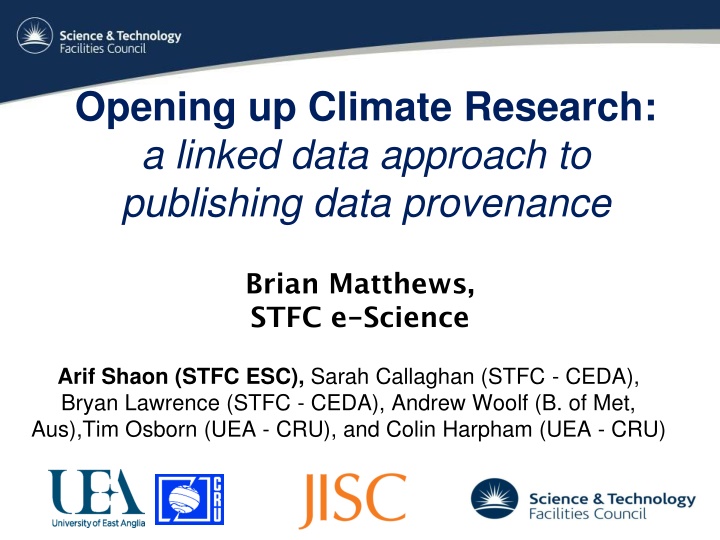
Opening up Climate Research: A Linked Data Approach to Data Provenance
Climate research benefits from a linked data approach to publishing data provenance, enhancing transparency, reproducibility, and collaboration. Initiatives like ACRID and the Science and Technology Facilities Council promote data sharing, metadata curation, and infrastructure development in the scientific community. Challenges such as repeatability, reusability, and metadata management are addressed to advance climate science knowledge and practices.
Download Presentation

Please find below an Image/Link to download the presentation.
The content on the website is provided AS IS for your information and personal use only. It may not be sold, licensed, or shared on other websites without obtaining consent from the author. If you encounter any issues during the download, it is possible that the publisher has removed the file from their server.
You are allowed to download the files provided on this website for personal or commercial use, subject to the condition that they are used lawfully. All files are the property of their respective owners.
The content on the website is provided AS IS for your information and personal use only. It may not be sold, licensed, or shared on other websites without obtaining consent from the author.
E N D
Presentation Transcript
Opening up Climate Research: a linked data approach to publishing data provenance Brian Matthews, STFC e-Science Arif Shaon (STFC ESC), Sarah Callaghan (STFC - CEDA), Bryan Lawrence (STFC - CEDA), Andrew Woolf (B. of Met, Aus),Tim Osborn (UEA - CRU), and Colin Harpham (UEA - CRU)
Science and Technology Facilities Council Provides large-scale scientific facilities for UK Science RAL is the home of two key UK environmental data centres, BADC and NEODC E-Science Centre Involved in Digital Curation activities Data management Active contributor in the international arena of Environmental Informatics, e.g. OGC(OWS 6), INSPIRE and ESA
ACRID Advanced Climate Research Infrastructure for Data Developed a linked-data approach to publishing complex climate research datasets Collaboration between: - Climatic Research Unit, University of East Anglia - STFC e-Science Centre, Rutherford Appleton Laboratory - Met Office (unfunded partner) Funded by the JISC Managing Research Data (MRD) Programme Completed on 1 August 2011
Data Publication Publishing scientific datasets as scientific resources validation and reproducibility credit Data by itself is not sufficient verification of data provenance detailed workflow information Including analysis software
House of Commons Report (data sharing) actions were in line with common practice in the climate science community it is not standard practice in climate science to publish the raw data and the computer code in academic papers . ...that climate scientists should take steps to make available all the data that support their work (including raw data) and full methodological workings (including the computer codes) .
Main Challenges for ACRID Repeatability and Reusability Facilitating traceability of the provenance of published data Enabling re-enactment and reusability of the workflows Common information model Interoperability with existing systems and tools Address dynamic/evolving datasets, e.g. versioning Citable in scholarly communication Efficient metadata curation strategy Accurate collection of metadata Efficient management and storage Querying and Searching Keep metadata in sync with data
ACRID Information Model (Workflow Analysis) Time-series weather observation data
ACRID Information Model (Main Concepts) Observation The act of measuring or calculating a particular property (e.g. temperature) associated with a certain feature of interest (e.g. air) over a discrete period of time Process an action or a set of actions performed to produce the result (i.e. dataset) of an observation e.g. an algorithm, a computation, a manual procedure Processor an entity or a set of entities that performs and/or controls a process in order to produce the result of an observation e.g. a human, computer software, an instrument etc.
ACRID Information Model Need to be compatible with existing models in use in Environmental science Developed as: an application schema (profile) of the ISO 19156 Observations & Measurements (O&M) Model with the observation related concepts derived from the Climate Science Modelling Language (CSML) TimeSeriesObservation classes Available in UML, GML schema and RDF Ontology
ACRID Information Model Overview
Data Citation (Identification) Digital Object Identifier (DOI) for dataset identification DataCite initiative International consortium, incl. British Library, assigning DOIs to datasets Earth System Science Data journal issues DOIs to data publications The main DOI question What does a DOI point to? We propose linked-data .
A Published Linked Workflow Both content and format should be static!
Conclusions opening up climate research datasets facilitates greater transparency and traceability of the data life-cycle; enables data accessibility and sharing uses ISO standards and linked-data principles potential to be applicable in wider areas of science But its only the start the real benefit of ACRID may not be realised without real consumers Linked-data vs Geospatial data formats needs to be addressed Official Ontology representations of the ISO 19000 models the application of DOIs for publishing linked scientific workflows should be explored further
Questions? arif.shaon@stfc.ac.uk ACRID Website: http://www.cru.uea.ac.uk/cru/projects/acrid/ ACRID Linked Workflows Server: http://westerly.badc.rl.ac.uk:8080/alws/index .html



